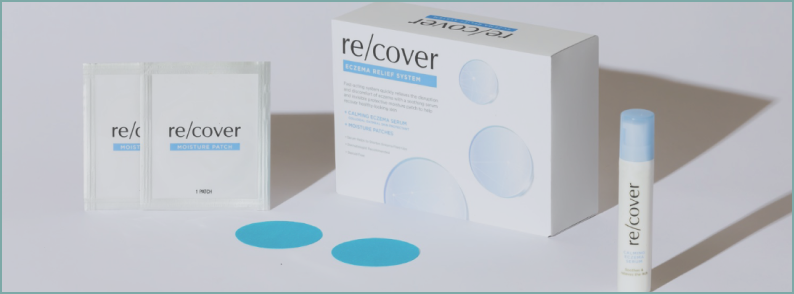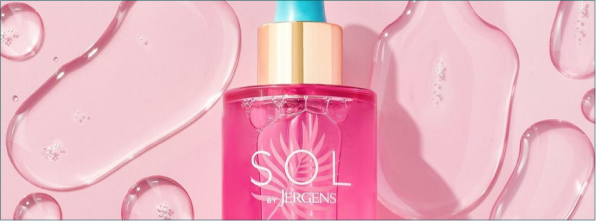Winter Skincare: 6 Skincare Tips to Relieve Dry Winter Skin

Winter typically means that the days are getting colder, shorter, and drier. Your wardrobe is not the only thing you need to switch up this winter season. As temperatures drop, dry air and fierce winds can strip natural oils from your skin. Harsh winter weather can also trigger dryness and sensitivity.
You will likely need to change up your skincare routine during the colder months to protect your skin from harsh environmental conditions. Follow these tips to resolve pesky skin issues that often come up during the winter months!
Common Winter Skincare Issues
If you are like most people, your skin requires extra care during winter to look and feel its best. Here are the most common winter skincare issues:
Dry Skin
Usually-hydrated skin can quickly dry out during the colder months because humidity tends to decrease in winter. When the atmosphere outside is dry and cold, the water in your skin evaporates quickly, which can leave your skin feeling tight, flaky, and dry. In fact, dermatologists estimate that on average, your skin loses more than 25% of its ability to hold moisture during winter.
Acne and Breakouts
Depending on your skin type, you may notice that your skin breaks out more during winter. When your skin senses that it is dry, it may overproduce sebum, a natural oil secreted by your skin. While some sebum is necessary to keep your skin moist and soft, too much oil can clog up your pores and cause breakouts.
Chapped Lips
Just like less humidity in the air can cause dry skin, it can also cause chapped lips. While it is a common condition, chapped lips can become red and irritated if not treated.
Red and Uncomfortable Dry Skin
Cold air, low humidity, and strong winds strip your skin of much-needed oils. Turning up the heat in your house and taking hot showers every morning can also cause dry, red skin. Skin that is devoid of natural oils often develops a red appearance. Even worse, red patches and soreness can occur if your dry skin is left unchecked.
Dull Skin
Like many winter skin concerns, the primary cause of dull, lifeless skin is lack of moisture in the air. When your skin is dry, it may take on an ashy or grey appearance. Nourishing your skin daily with the right nutrients and products can help keep your skin looking luminous.
Winter Skincare Tips
If you worry about how to take care of skin in winter, you are not alone. Luckily, a few simple tweaks to your skincare routine can help keep your skin nourished and hydrated all winter long. Use our top six winter skincare tips to prevent dryness this winter:
Tip 1: Moisturize Throughout the Day
Most winter skincare woes are caused by a lack of moisture in the air. Regardless of your skin type, your skin will likely become drier and more sensitive in winter. Switch to moisturizing products designed to soothe and prevent dry skin, like a nourishing body lotion.
When showering, switch to a moisturizing cleanser designed to gently clean your skin without stripping it of moisture. If your skin feels dry after showering, your cleanser may be too harsh for your skin. After showering, try applying an after-shower moisturizer to instantly lock in hydration.
Not only does indoor air dry out your skin, but it can also dry out your mucous membranes, leading to chapped lips, nosebleeds, and sore throats.
Set your heater to the lowest comfortable setting and consider using a humidifier at night. Humidifiers help add moisture to the air, so they can help prevent dry skin. Most doctors recommend keeping your heater below 70 degrees to maintain a comfortable moisture level in the air.
Tip 3: Wear Comfortable, Breathable Clothing
Some fabrics, like wool and polyester, can irritate the skin. Try wearing cotton, silk, or other soft fabrics to prevent skin irritation. These natural fabrics are more breathable than heavier fabrics and are known for their ability to wick away sweat. If you choose to wear a wool sweater on a frigid day, layer a soft turtleneck underneath.
Tip 4: Use Products Designed for Dry Skin
Avoid using harsh formulas such as alcohol-based toners and astringents in the winter. Switch to dry skin moisturizers specifically designed to relieve and rescue extra dry skin. These types of products form a protective layer over your skin for instant and lasting dry skin relief.
Not only does handwashing generally increase during the winter, but due to the COVID-19 pandemic, people have been washing their hands more frequently. WIth this increased handwashing and the drier conditions of the winter, it has never been more important to use soap that does not strip you of moisture. With Jergens’ Cherry Almond Moisturizing Hand Wash, there’s no need to double up with lotion or worry about drying out your hands when you wash them.
Tip 5: Feed Your Body the Right Nutrients
Eating foods that are high in healthy fats, such as omega-3 fatty acids, can help keep your skin smooth and hydrated. Achieve healthy skin by taking care of your skin from the inside out. Add omega-3 fats into your diet with salmon, mackerel, and sardines. If you are a vegetarian, you can incorporate omega-3 rich foods including walnuts, soybeans, and tofu. Also, eating foods high in vitamin K can help soothe dehydrated skin.
Tip 6: Apply Sunscreen Daily
Just because it’s winter doesn’t mean you should stop using sunscreen. Snow reflects sunlight and can increase your sun exposure.
Apply a sunscreen lotion every morning and reapply every four hours if you participate in outdoor activities such as skiing or sledding. Sunscreen not only helps prevent sunburns, but consistent use can help prevent premature aging.
Key Takeaways
Taking care of your skin in the winter can be tricky, but prioritizing your skin's health is a necessity.
- Don't forget to moisturize throughout the day, paying particular attention to the skin on your hands.
- Avoid products that have harsh formulations, such as alcohol-based astringents and toners.
- Wear comfortable, breathable clothing and avoid harsh fabrics such as wool and polyester.











